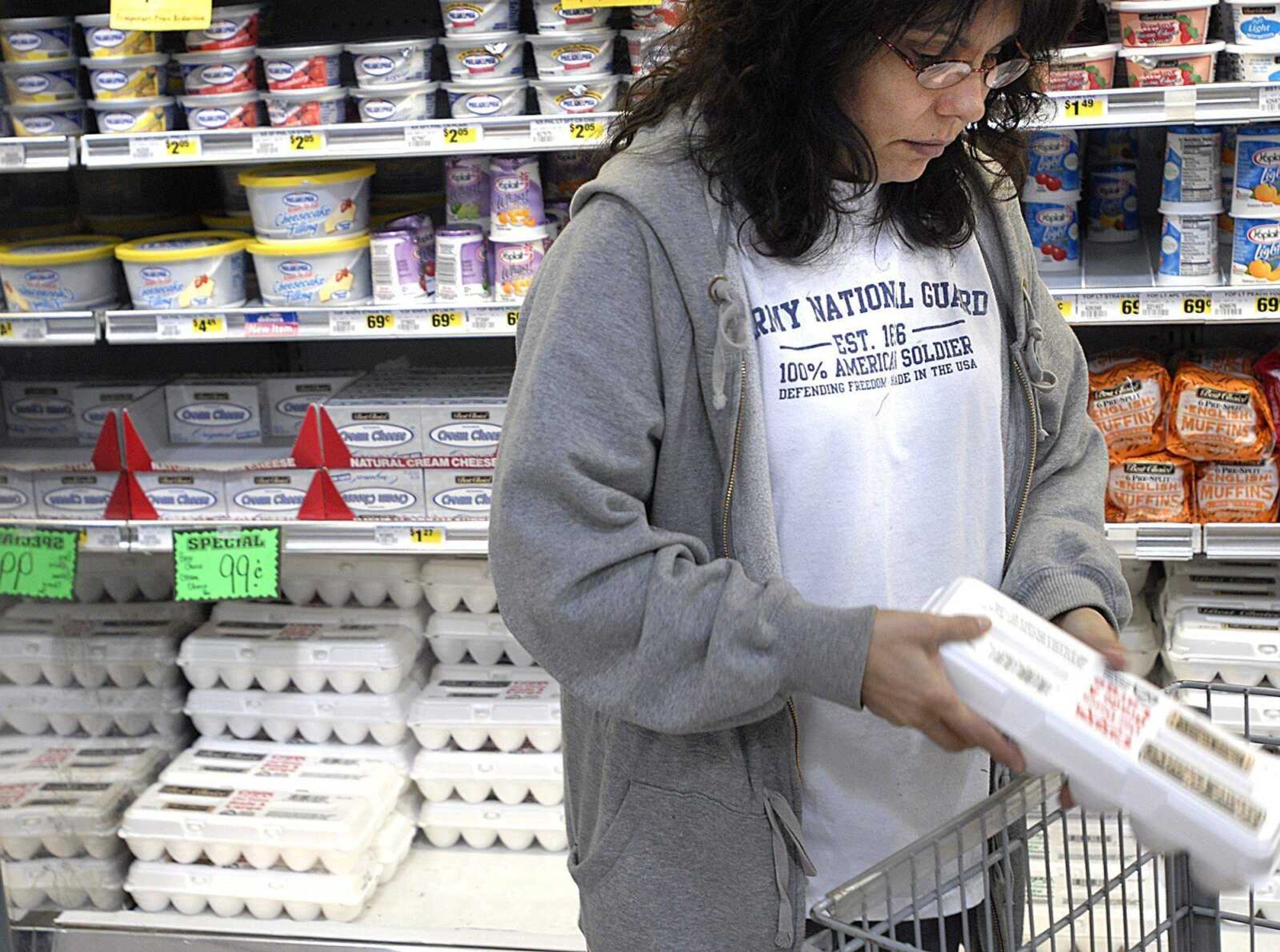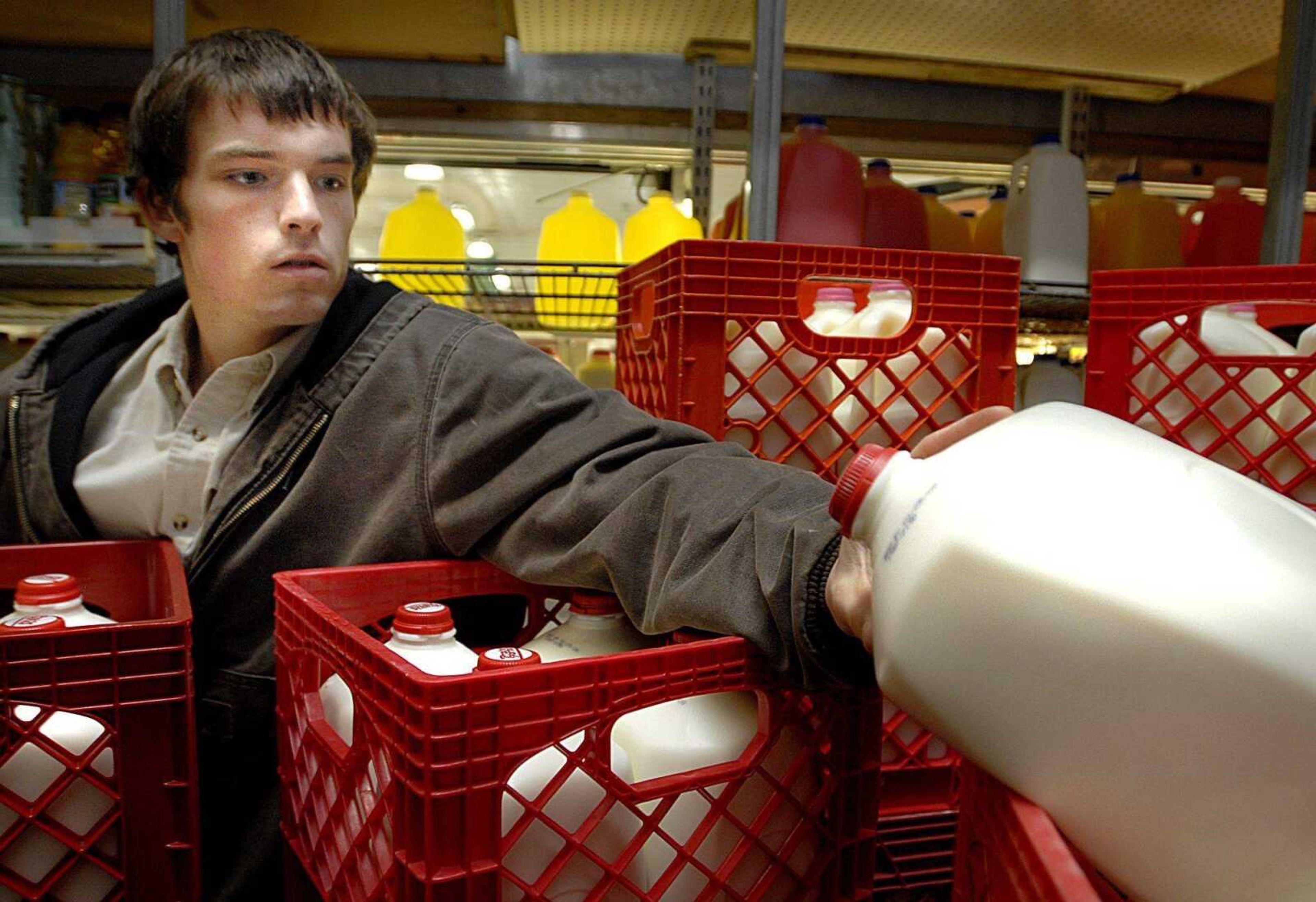Higher grain prices fueling increase in grocery costs
The next time you fry an egg, try to ignore the cries of pain from your wallet. Eggs are the latest in the long line of skyrocketing grocery prices, which in recent weeks shot up from less than $1 per dozen for large eggs to about $2 per dozen locally for the cheapest brands. According to USDA figures, the average price of eggs has more than doubled in the past year...
The next time you fry an egg, try to ignore the cries of pain from your wallet.

Eggs are the latest in the long line of skyrocketing grocery prices, which in recent weeks shot up from less than $1 per dozen for large eggs to about $2 per dozen locally for the cheapest brands. According to USDA figures, the average price of eggs has more than doubled in the past year.
Much of the speculation points to the same culprit that many say has driven prices for other groceries significantly higher in the past year: high grain prices driven by increased production of biofuels.
Corn and soybean prices recently rose to record levels on the Chicago Board of Trade (CBOT), and wheat rose to the maximum allowed by the CBOT, Bloomberg.com reported Monday. At the end of trading Monday, March corn was $5.12 per bushel on the CBOT, March soybeans were $12.96 and March wheat was $9.17. The price of grains were fueled by revised USDA estimates that lowered the amount of commodities harvested in 2007.
While the price could be good for farmers who've been hit hard by higher fuel and fertilizer costs this year, the price increase could be bad for consumers at the local grocery store.

High farm prices have been blamed for the rise in retail food prices over the past several months, which have seen a gallon of milk sold locally go from less than $3 to more than $4.
Kevin Groves, store manager of Country Mart in Jackson, said grocers can do little about the increasing prices because food producers are charging more.
Groves said he's not sure if recent high grain prices will translate into more increases at the grocery store, but any time higher grain prices are discussed, increases in food prices seem to follow.
Kelly Smith, marketing and commodities director for the Missouri Farm Bureau, said higher commodities prices probably aren't the primary culprit in the rising price of items like cereal that use "pennies" worth of commodities per package. Instead, Smith said he thinks fuel costs are causing those increases.
But with meats, dairy and eggs, Smith said there's a direct link between higher prices and inflated grain markets.
Meat, dairy and poultry producers rely heavily on grain to feed livestock. They're directly effected by the higher price of grain, and must pass that increase on.
"Those prices can't stay up and livestock sector prices not go up," Smith said.
At Country Mart on Monday afternoon, shoppers said they definitely noticed the higher prices.
Shannon Stinson of Jackson said higher milk prices affect him most directly.
Asked about higher prices, he held up a pint of milk. With old prices, Stinson said he bought half-gallons instead of pints.
He points the finger at fuel.
"I think gas prices has affected it more than anything," he said.
One shopper who didn't want her name used said the rise in egg prices is a shock, especially with her fixed income as a retiree.
But it's not just eggs that are pinching her pocketbook.
"We get it from the gas, we get it from the food, we get it from everything, because it takes more money to transport it in," she said.
Lupe Drum of Marble Hill, Mo., is just glad she doesn't have to feed more people in her family. She's even noticed a price increase in toaster pastries. And she isn't banking on frying that egg becoming less painful any time soon. Now she's buying less to keep her budget balanced.
"I have hope, but I doubt it," Drum said about food prices coming back down.
Data on how much food prices have gone up nationwide will be available Wednesday, when the latest Consumer Price Index will be released.
msanders@semissourian.com
335-6611, extension 182
Connect with the Southeast Missourian Newsroom:
For corrections to this story or other insights for the editor, click here. To submit a letter to the editor, click here. To learn about the Southeast Missourian’s AI Policy, click here.









